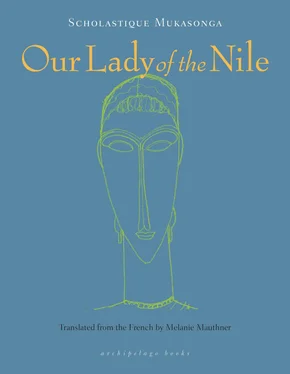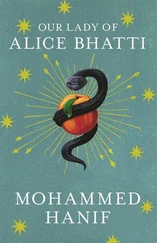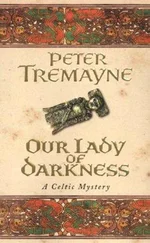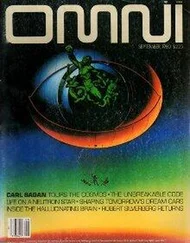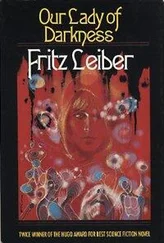“Ah, good advice,” said Immaculée. “Perhaps I will.”
Once the week of mourning was over, Frida’s name was tacitly banned by everyone at the lycée of Our Lady of the Nile. Yet it still tormented the seniors, like one of those shameful words you know without recalling where you got it from nor who taught you it, but which you hear yourself saying without having wanted to. If one of the girls made a slip of the tongue and said the forbidden name, all the other girls turned away, pretended they hadn’t heard anything, and began to talk really loudly to cover up, to erase with their pointless chatter, the interminable echo of those two syllables inside their heads. For there was now a shameful secret lying coiled deep within the lycée, and deep within each of the girls, too; remorse in search of a culprit; a sin that could never be purged since it would never be owned. The image must be rejected at all costs: Frida, like that black mirror in which each girl could read her own fate.
Leoncia couldn’t wait for Virginia to return home for Easter break. Virginia had always been her mother’s favorite child. After all, they had named her Mutamuriza, “Don’t Make Her Cry.” And now that Virginia was at the lycée — a student! as Leoncia constantly reminded everyone — she was her only pride and joy. Already, she pictured herself accompanying her freshly arrived daughter in her school uniform from enclosure to enclosure greeting everyone who lived on the hill. It would be her glory day! Dressed in her finest wraparound, Leoncia would gauge with either a critical or a satisfied eye just how much respect each neighbor showed her daughter, who would soon return with her diploma, that prestigious Humanities diploma that was awarded so parsimoniously, particularly to girls, and especially Tutsi girls. Even the head of the local Party committee, who always found new ways to harass and humiliate the only Tutsi family on the hill, felt obliged to receive them and to express his congratulations and encouragement, the fulsomeness of which did little to hide the fact he was only doing so out of obligation. Leoncia felt reassured: Virginia was a student, and when you’re a student, so she believed, it’s as if you’re no longer Hutu or Tutsi, but have taken on another “ethnicity”: what the Belgians used to refer to as civilized. Virginia would soon be a primary school teacher, maybe even at the nearby mission school, since that’s where Father Jerome had first noticed how intelligent she was. He eventually convinced Leoncia that Virginia (her eldest daughter! She to whom her brothers and sisters owed their arrival, their uburiza , She who opened their mother’s belly for them, She who had to be a little mother for her brothers and sisters) had another future than that of tilling the land alongside them. “A brilliant future,” he kept saying, “brilliant!” To persuade Leoncia, he suggested that Virginia could even become a nun with the Benebikira Sisters, not as a cook but as a teacher of course, and later progress to Mother Superior and then Mother General, why not. Leoncia preferred to see her daughter find a good husband, a civil servant obviously, with his own Toyota so he could run a trading business. Already, she was calculating Virginia’s dowry. Not just cows. Also cash to build a brick house, the kind whites live in, with a door and padlocks, and a sheet-metal roof she’d see shining in the sun from far off as she worked her field. And they’d no longer sleep on straw, but on mattresses she’d buy from Gahigi at the market; even the children would have their mattresses, one for the three boys, another for the two girls. And she’d have her own parlor to receive family, friends, and neighbors. Especially the neighbors. They’d sit on folding chairs, not mats. And taking pride of place on the table would be the large shiny golden thermos, always full of tea (three liters!) and always hot, awaiting the arrival of Sunday visitors, who would sip the still-warm tea and chatter to each other as they left. “How lucky Leoncia is to have a daughter who has done advanced studies, she’s got a big thermos!”
It rains in March. And in April, it rains even more. Let it rain! Let it rain! The grain lofts will be full and children’s tummies bulging. During her two-week vacation, Virginia became the “little mother” again, a position that was hers by right of being the eldest. She looked after her brothers and sisters, and carried her mother’s newborn on her back. Leoncia was on vacation too. In the evening, the little ones peppered her with questions, and Virginia regaled them with tales of the wonders of the lycée of Our Lady of the Nile. But it was out in the field that Leoncia truly appreciated her daughter. No, the whites’ lycée hadn’t changed her. She was the first, before sunrise, to hitch up her wraparound and step barefoot into the mud to wield her hoe. She knew how to track the parasites by making her way between the stems of maize, around which the beanstalks attempted to twine themselves, without crushing the younger shoots sown in December. She could tell the young sorghum from the threatening weeds, which she ripped out, leaping between the mounds of earth covering the sweet potatoes. “Now, that’s my daughter!” said Leoncia, “May her name bring her good fortune: Mutamuriza, ‘Don’t Make Her Cry.’ ”
It was while pulling up the beans that Virginia told her mother she’d go visit Skolastika, her paternal aunt, the next day.
“Of course you must visit your aunt,” said Leoncia. “Why didn’t I tell you before? Skolastika’s not my sister, she’s your father’s sister, you’re both descended from Nyogosenge. You’ve got to stay in your aunt’s good books, that’s what I’ve always said. Curses upon us should she get in a tiff! A paternal aunt is like a threatening storm. If she were to curse you, what would become of us? Skolastika has always brought you good luck, she’ll do the same for your diploma. But you can’t visit your aunt empty handed. What would she think of me? Or your father! Take the hoes, we’ll go make some sorghum beer for Skolastika.”
The whole day was spent making the sorghum beer without which Virginia couldn’t visit her aunt. Leoncia was concerned. They were all out of amamera , the black sorghum used to make beer, and umusemburo , yeast, and had to ask their neighbors. Some didn’t have any, others clearly didn’t want to give them any. Whatever the outcome, each visit required long exchanges of courtesies. Leoncia tried not to show her impatience. Finally, old Mukanyonga agreed to give them just enough to brew a tiny jugful, following a never-ending monologue about how hard up she was and how tough times were. It doesn’t take long to prepare sorghum beer if you’ve got amamera and umusemburo , but they had to find a calabash to use as a container, and they needed one with an elegantly curved neck, and gracefully rounded, and they had to pick out one of Leoncia’s finely woven baskets to put it in (with a pointy lid), which they decorated with a garland of banana leaves. Then they wrapped the precious gift in a hand towel Virginia had brought back from the lycée, and put it in a little bag.
The pickup stopped at the Gaseke market. Virginia, who, thanks to her school uniform, had managed to sit next to the driver, waited for the enormous woman whose hot, flabby, flesh had squashed her at every bend to extract herself, whining all the while and wiping away the sweat. The passengers at the back had already jumped out and retrieved their luggage: rolled-up mattresses bound with sisal string, sheet metal, a pair of goats, jerricans full of banana beer or petrol. Boys came running from the row of stalls bunched along one side of the muddy market square to unload drums of palm oil and bags of cement that the Pakistani merchant had been impatiently expecting.
Читать дальше
